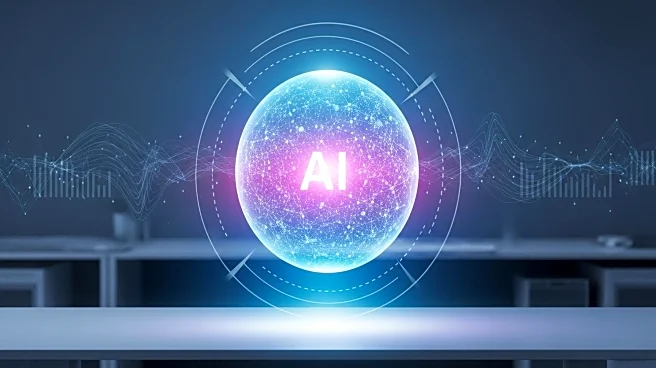What's Happening?
ChatGPT, an AI chatbot developed by OpenAI, has become a significant tool in various fields since its release in 2022. It is designed to answer questions, summarize text, write content, code, and translate languages. The chatbot operates based on a large language model, which uses predictions and past information to generate responses. However, it is prone to errors, biases, and hallucinations. Users can access ChatGPT via a website or mobile app, with options for free or premium memberships. The tool is widely used for both personal and professional tasks, such as creating resumes, finding deals, and generating meal plans. Despite its utility, users are advised to fact-check the information provided by ChatGPT, as it may not always be accurate.
Why It's Important?
The rise of AI tools like ChatGPT is reshaping how individuals and businesses operate, offering new ways to manage information and streamline tasks. This development has significant implications for industries reliant on data processing and content creation, potentially reducing the need for human labor in certain areas. However, the reliance on AI also raises concerns about data security, privacy, and the accuracy of information. Companies investing in AI technology, such as OpenAI, face challenges in ensuring the reliability and ethical use of their products. As AI becomes more integrated into daily life, understanding its capabilities and limitations is crucial for users to make informed decisions.
What's Next?
As AI technology continues to evolve, further advancements in ChatGPT's capabilities are expected. OpenAI and other tech companies will likely focus on improving the accuracy and reliability of AI-generated content. Additionally, ongoing discussions about data privacy and ethical AI use will shape future developments. Users can anticipate more personalized and sophisticated AI tools, but must remain vigilant about the potential risks associated with their use. The tech industry will need to address these challenges to maintain public trust and ensure the responsible deployment of AI technologies.
Beyond the Headlines
The integration of AI tools like ChatGPT into everyday life raises ethical and cultural questions about the role of technology in society. As AI becomes more prevalent, there is a risk of over-reliance on automated systems, potentially diminishing critical thinking skills and human interaction. Furthermore, the use of AI in decision-making processes could lead to biases and discrimination if not properly managed. These issues highlight the need for comprehensive regulations and guidelines to govern the use of AI, ensuring it benefits society while minimizing potential harms.










